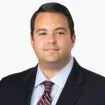Seyfarth Synopsis: The Second Circuit's recent rulings in Munoz-Gonzalez v. D.L.C. Limousine Service, Inc. and Flood v. Just Energy Marketing Corp. further demonstrate the impact of the Supreme Court's holding in Navarro, et al. v. Encino Motorcars, LLC as it pertains to FLSA exemptions by rejecting the traditional "narrow construction" approach in favor of a "fair interpretation."
We previously wrote about how the Supreme Court put the brakes on the outdated view that FLSA exemptions should be "construed narrowly" in Navarro, et al. v. Encino Motorcars, LLC. This past week, the Second Circuit Court of Appeals issued two decisions finding two different categories of workers exempt under the FLSA based on a fair (rather than a narrow) interpretation of FLSA exemptions, as the Supreme Court held is the correct approach.
Stalling Out in Munoz-Gonzalez v. D.L.C. Limousine Service, Inc.
In Munoz-Gonzalez v. D.L.C. Limousine Service, Inc. a group of limo drivers argued that DLC, a "chauffeured car service" violated the FLSA by not compensating them for the overtime hours they worked. When the district court granted summary judgment in favor of DLC, Munoz-Gonzalez appealed arguing that DLC was an "airport limousine service" and therefore did not qualify for the taxicab exemption.
On the second lap around the racetrack, Munoz-Gonzalez stalled out once again. In determining whether the taxicab exemption was applicable, the Second Circuit drove straight through the tracks made by the Supreme Court in Encino Motorcars. The court inspected the ordinary meaning of the word "taxicab" and found that a "taxicab" is "(1) a chauffeured passenger vehicle; (2) available for hire by individual members of the general public; (3) that has no fixed schedule, fixed route, or fixed termini" and therefore DLC qualified for the exemption and the drivers were not entitled to overtime pay.
Notably, in affirming the grant of summary judgment in favor of DLC, the Second Circuit rejected Munoz-Gonzalez's admonition to construe the FLSA narrowly. Instead, the opinion cited Encino Motorcars holding that FLSA exemptions should be construed "'fair[ly]' . . . with full attention to the text" instead of in favor of the plaintiff. In the words of the Second Circuit: "a taxicab is a taxicab is a taxicab."
Hard Knock Life for Flood v. Just Energy Marketing Corp.
In Flood v. Just Energy Marketing Corp., the Second Circuit answered Plaintiff Flood's door knock but ultimately rejected his sales pitch. Kevin Flood, a door-to-door salesman, sued his employer alleging that the company violated the FLSA by failing to pay him and the class that he hoped to represent overtime for the weeks that they worked in excess of forty hours. The district court bought into the employer's argument that Flood was not entitled to overtime pay based on the "outside salesman" exemption, 29 U.S.C. § 213 (a)(1). On appeal, the Second Circuit upheld the district court's ruling and rejected Flood's argument after quoting Flood's own statement: "sales is 'what I do.'"
The Second Circuit once again reiterated that although "[u]ntil recently, it was a rule of statutory interpretation [to] . . . narrowly construe an exemption to the FLSA in order to effectuate the statute's remedial purpose," the Supreme Court rejected that view in Encino Motorcars because "exemptions under the FLSA are 'as much a part of the FLSA's purpose as the overtime-pay requirement.'"
A Shifting Tide
Both cases can be viewed as lighthouses signaling a tide shift in FLSA interpretation based on Encino Motorcars and the continued banishment of the "construe narrowly" canon of construction some courts previously used in making exempt status determinations.
The content of this article is intended to provide a general guide to the subject matter. Specialist advice should be sought about your specific circumstances.



